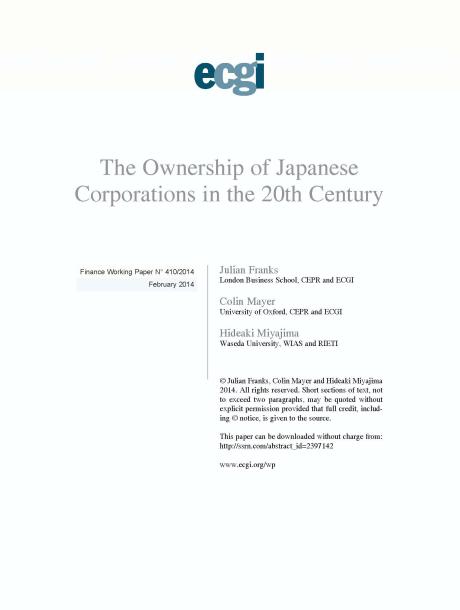
Finance Series
The Ownership of Japanese Corporations in the 20th Century
Abstract
Twentieth century Japan provides a remarkable laboratory for examining how an externally imposed institutional and regulatory intervention affects the ownership of corporations. In the first half of the century, Japan had weak legal protection but strong institutional arrangements. The institutions were dismantled after the war and replaced by a strong form of legal protection. This inversion resulted in a switch from Japan being a country in which equity markets flourished and ownership was dispersed in the first half of the century to one in which banks and companies dominated with interlocking shareholdings in the second half of the century.











